Articles
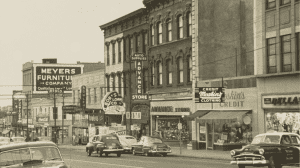
Almost eight decades ago, Charlotte had just topped 100,000 residents, World War II raged, legal segregation was the law of the land and most of Mecklenburg County was still farmland. But despite the obvious differences from today, an urgent call in 1944 for the city to develop a plan to manage its growth still resonates […]

In addition to everything else in 2020, we had more than our fair share of rain. In fact, by early November we had already seen 53 inches of rain in the Triad region of North Carolina, which is well over a foot above our normal rain level for an average year. Charlotte received almost 59 […]

The end of the year is a natural time for reflection, but does anyone really want to dwell on 2020? I imagine we’re all yearning for the chance to move forward, to put that dreadful year behind us, make a fresh start and take charge of our lives. In 2021, my resolution is to keep […]

If we’re being completely honest, those of us who sat down this year to write traditional end-of-year reflections struggled to find something positive to say. I certainly did. Whether an organizational newsletter or a family’s holiday greeting card, it seemed the best one could say about 2020 is that it’s finally over. However, as I […]

When it comes to the discussion about Charlotte’s proposed 1-cent transit and mobility sales tax increase, there’s been a lot more talk about moving up the socioeconomic ladder than moving around the city. So far, the public push for more funding hasn’t included specifics around possible ridership numbers, how much specific transit corridors might cost, […]
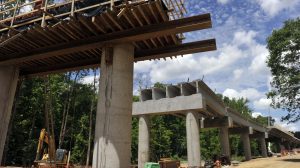
Charlotte voters could find the biggest ask in local history on their ballots next year: A $6 billion referendum to fund the local share of the city’s “transformational mobility network” with a new, one cent sales tax. Charlotte Mayor Vi Lyles, the Charlotte Moves Task Force and other local leaders have signaled their support for […]

Imagine what it would be like to help establish a brand new national park. One that would be larger than the combined acreage of the Everglades, Yellowstone, Yosemite, Grand Teton, Canyonlands, Mount Ranier, North Cascades, Badlands, Olympic, Sequoia, Grand Canyon, Denali and Great Smoky Mountains. One that would be spread uniformly across the country instead […]

My sister and I once decided it would be a fine idea to tour the Mojave Desert in May. Being hard-headed women from the Uwharries, we forged ahead even after the Santa Ana winds kicked up and pushed temperatures into triple digits. The heat made for a memorable, if sometimes freakish, trip. Along the way, […]
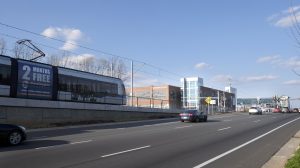
When it comes to Charlotte’s transportation ambitions for the coming decades, the biggest question is simple: How will the city pay for it all? Austin, Tex., could point to an answer. Voters there approved a $7.1 billion transit plan on Election Day this year, with 58% supporting the referendum. The plan will raise property taxes […]
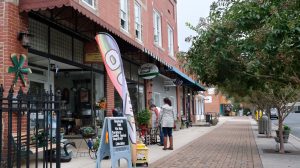
As Charlotte continues its quest to become a more urban and cosmopolitan city, is it possible that the small towns and former mill villages dotting the land around Charlotte have something to teach us about how to solve some of the biggest and most pressing needs facing our big cities and suburbs today? Bill Fulton, […]
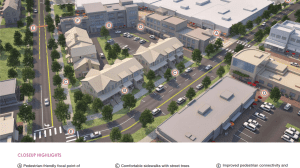
It probably wasn’t the setting Charlotte planners would have picked to unveil their vision for the future: A parking lot off Independence Boulevard, acres of scarred asphalt surrounded by a tangle of some of the city’s least pedestrian-friendly streets. But in the wake of the covid-19 pandemic, an in-person event at a densely packed brewery […]
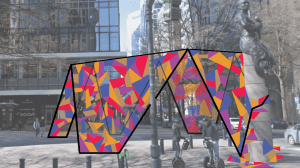
“Not many events inspire our historical imagination and force us to critically think about our past the way a falling monument does.” Associate Professor of Sculpture Marek Ranis, who grew up behind the Iron Curtain in communist Poland, has seen monuments go up and come down in countries like his homeland. But the intense evaluation […]